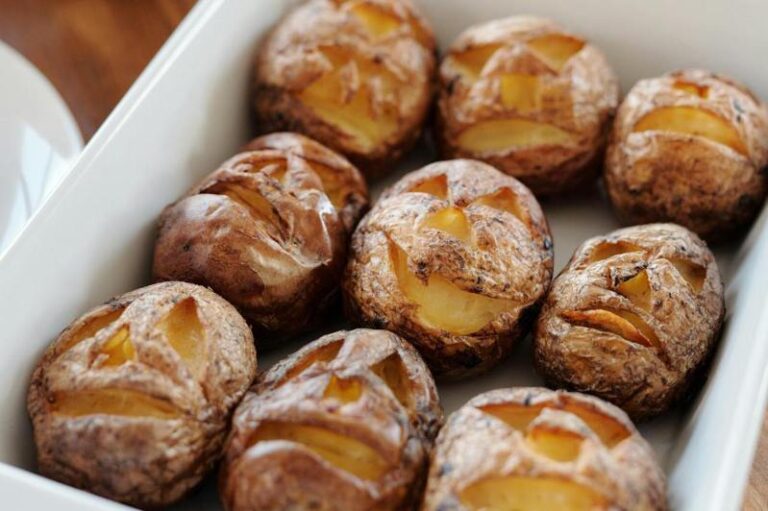
Why do homemade potatoes always taste less delicious than those from your favorite steakhouse? One of the main reasons for this is diversity.
Steakhouse chefs often choose specific types of potatoes when creating potato dishes. “You should always start with russet potatoes,” says chef Sidney Wilcox. Brown skinned potatoes contain a lot of good nutrients. The starch content and thick skin mean that this variety is particularly suitable for making soft baked potatoes with crispy skin. Yukon Gold potatoes are also a good substitute for baked potatoes because they are rich in starch.
Steakhouse chefs always choose the best potatoes, starting with how they feel. Isaac Topps, chef-owner of Topps Meatery, recommends choosing potatoes that are smooth and firm. It is best to avoid wrinkled or loose potatoes.
“I find that choosing potatoes of similar size helps them cook more evenly in the oven or on the grill,” said Walter Nunez, executive chef of The Rex Steakhouse. Make sure they cook evenly at approximately the same time.
A common way to serve potatoes in steakhouses is to cut away the skin and spread out the fluffy interior. The secret to making this dish is lots of salt. Steakhouse chefs will cover roasted potatoes with salt before sending them into the oven, usually using a thick layer of oil to help the salt stick. This method is quite scientific. When you put salt on the outside of potatoes, it helps water reach the surface and evaporate. This will soften the inside of the potato and will also help in making the skin dry…
When you think of steakhouses, you often think of cooking potatoes wrapped in aluminum foil, but chefs recommend against doing so. “I see a lot of people wrapping potatoes in aluminum foil, but this is a big mistake and can spoil the potatoes,” Topps said. “The skin is wet.” Wrapping the potatoes in aluminum foil will hinder internal moisture, but cooking should reduce moisture as much as possible to give the potatoes a soft texture. If the moisture has nowhere to evaporate, it will end up with a steamed-up effect.
Wrapping in aluminum foil will keep the oven heat from going directly into the potatoes, causing them to become soft and soggy. However, you can wrap the potatoes in aluminum foil after cooking, but remember that this will cause the potatoes to become soggy over time. ,
Consumption